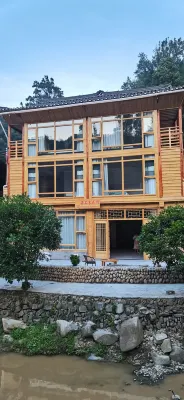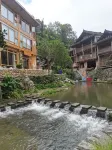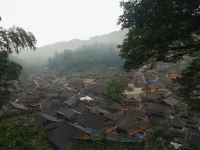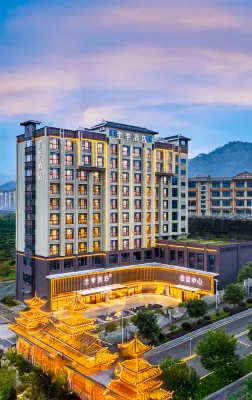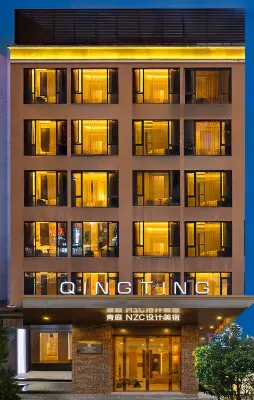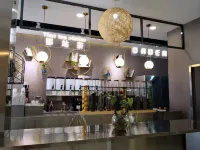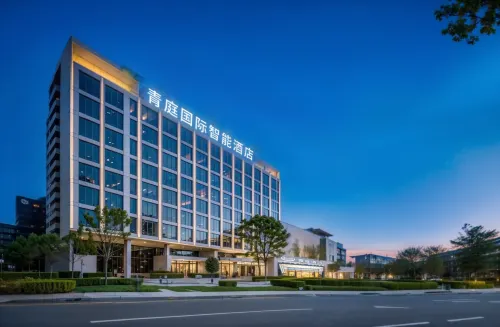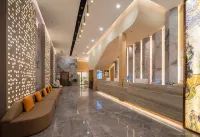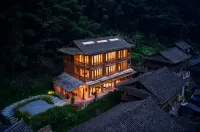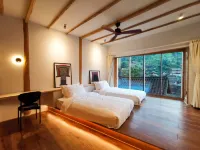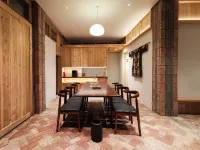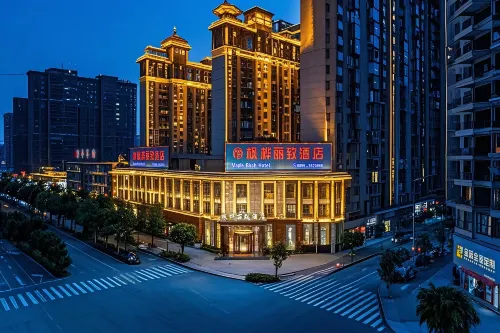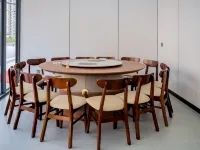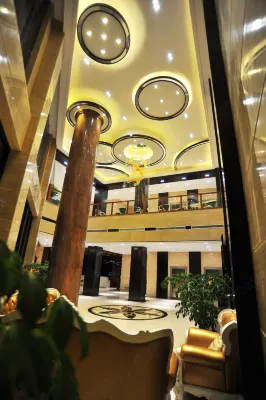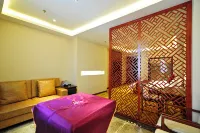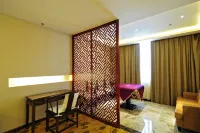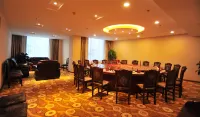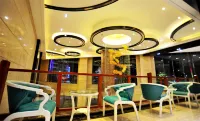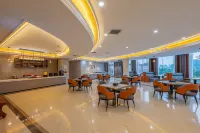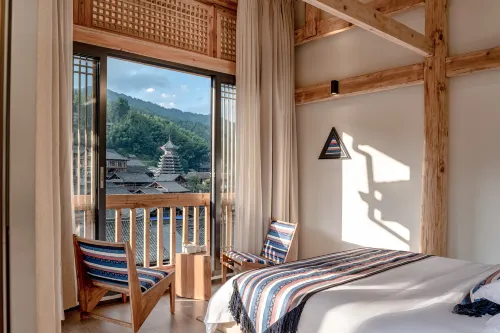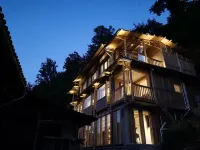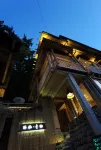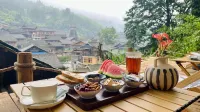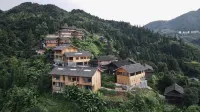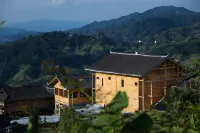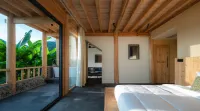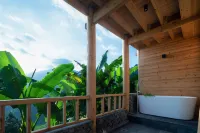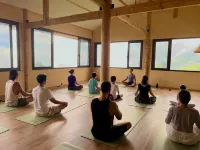Zhuofeng Qingnan Homestay is located in the core area of Dali Dong Village, Rongjiang County, Guizhou Province. Its unique charm stems from the symbiosis between architecture and nature, immersive cultural experiences, and the localized operation concept.
I. Symbiotic Aesthetics of Scenic Beauty and Architecture
Prime Scenic Location: Nestled against ancient forests and facing the stream in the village, the homestay offers guests a panoramic view of the Dong village, providing an immersive natural experience of "scenery at every window." "Enjoying afternoon tea on the outdoor viewing platform" has become a distinctive打卡 (check-in) attraction in Dali Dong Village.
Modern Expression of Dong Architectural Culture: The architecture retains the essence of the Dong's stilted wooden structures while incorporating modern comforts. For example, in renovating an abandoned granary, traditional wooden frameworks were combined with modern materials to create innovative spaces that "restore the old as it was."
Integration of Local Culture: Indoors, Dong symbols are deeply embedded: sofa patterns, bed end blanket designs, lighting fixtures, and the bar counter all draw inspiration from Dong totems. The interior design of the rooms incorporates localized elements from Dali Dong Village, including patterns from the old ladies' weaving bridges, terraced rice paddy stacks, and traditional architectural railing graphics. Lamp designs utilize the shape of winding bobbins from weaving scenes.
II. Cultural Immersion: From Residence to Rituals of Life
Daily Intangible Cultural Heritage Experiences: Hostesses from the village lead guests in participating in Dong wedding banquets, fire pit cooking, and Dong song learning activities, transforming intangible cultural heritage from performances into shared life experiences. Special Dong breakfasts and afternoon teas are provided, with ingredients sourced from villagers' self-grown rice and pumpkins, boiled into porridge and paired with traditional dishes, enhancing the "local flavor."
Cultural Linkage of Housekeeping Services: The hostesses serve as both "cultural guides" and "life companions." They are not only members of the singing troupe but also convey the Dong spirit of "mutual aid and sharing" through their enthusiastic service, making guests feel at home.
III. Design Philosophy: Balancing Tradition and Modernity
The homestay adheres to the "whole village operation" concept, co-creating symbiosis with the government and village collective. During the construction of Zhuofeng Qingnan, a "Building Renovation Design Guide Manual" was compiled in collaboration with Guizhou University to ensure that renovations do not disrupt the village's unified appearance, allowing historical buildings to take on new functions. Zhuofeng Qingnan Homestay carries the government's trust to become a demonstration project for the "renewal of the times" in Dali Dong Village!
Zhuofeng Qingnan is not just a place for accommodation but also a "living exhibition hall" of Dong culture:
● Nature's Realm: Architecture amid ancient forests and streams reshapes urbanites' imagination of "poetic dwelling";
● Cultural Soul: From every artifact to housekeeping services, the Dong spirit is embodied as tangible warmth;
● Community Power: By connecting villagers, scholars, and tourists, sustainable revitalization of traditional villages is achieved.
As commented by a tourist: "There is no star-rated luxury here, but there are smiles by the fire pit and nights worth remembering for a lifetime."
« Le choix du Qingnan B&B a été une grande surprise de mon voyage, non pas en raison de la perfection du design des chambres du B&B ou du luxe de la décoration, mais parce que j'ai rencontré l'équipe de Shenzhen qui a développé ce B&B. Nous avons eu des échanges approfondis, ce qui m'a fait comprendre qu'ils ne considèrent pas seulement le développement du B&B comme une entreprise, mais qu'ils investissent également leur sueur et leur passion dans la cause de la revitalisation rurale. En les présentant, j'ai appris que de nombreux modèles de chambres d'hôtes s'inspirent de la culture traditionnelle de l'ethnie Dong, comme les motifs des canapés, des couvertures de chevet et des lampes. De plus, la décoration intérieure utilise également beaucoup de matériaux en bois. La conception globale reflète parfaitement les caractéristiques des habitations de l'ethnie Dong et répond aux exigences de confort des clients. Notamment la rénovation de l'ancien grenier, que je trouve parfaite. Comment préserver les caractéristiques originales des bâtiments anciens tout en leur permettant de réaliser de nouvelles fonctions est un problème qui doit être résolu dans le développement futur des villages anciens traditionnels chinois. Ce qui m'a aussi impressionné, c'est la gouvernante du B&B, Xiao Tan, une belle femme Dong et membre du groupe de chant Dong du village. On ne voit pas du tout qu'elle est déjà mère de deux enfants. Même si elle était femme au foyer à temps plein depuis plusieurs années et venait de retourner au travail, j’ai été étonné par ses excellentes capacités de communication et de résolution de problèmes. L’équipe de développement espère également fournir davantage d’emplois aux villageois locaux grâce à la localisation. J’espère notamment que des villages plus traditionnels pourront être développés par des équipes professionnelles pour éviter la destruction des bâtiments traditionnels et l’apparition de phénomènes incongrus. Sœur Xiao Tan m’a également invité à assister au banquet de mariage dans le village Dong, où j’ai pu découvrir l’atmosphère animée du mariage local. Le soir, nous sommes allés ensemble au coin du feu pour faire rôtir des pommes de terre, des patates douces, des gâteaux et la poitrine de porc que tout le monde adorait, et nous avons passé la nuit la plus heureuse de ce voyage. Bien des années plus tard, je me souviendrai probablement de cette nuit, de leurs visages souriants au coin du feu et de leur passion comme le feu. »

